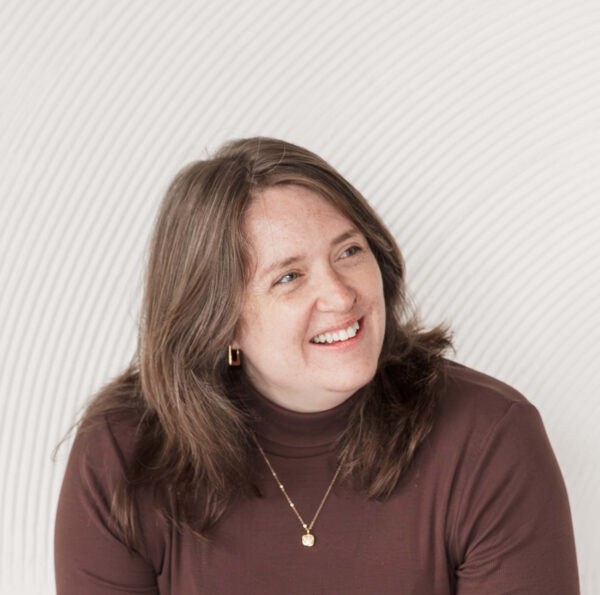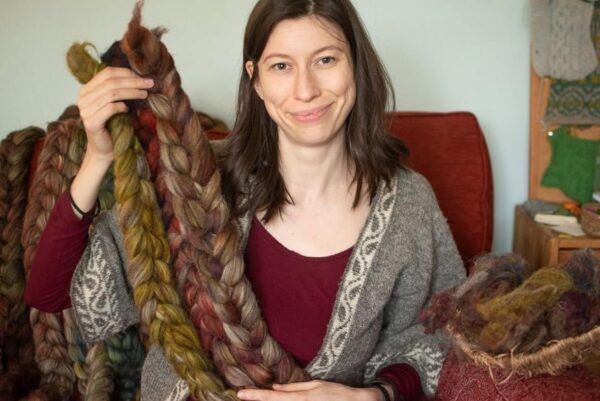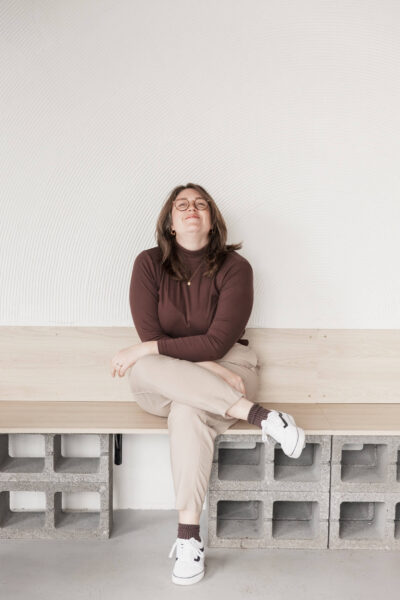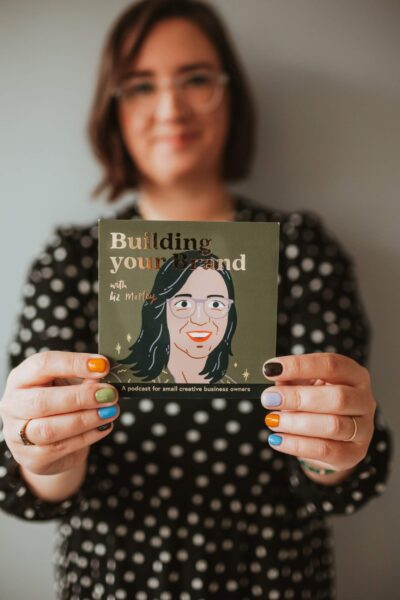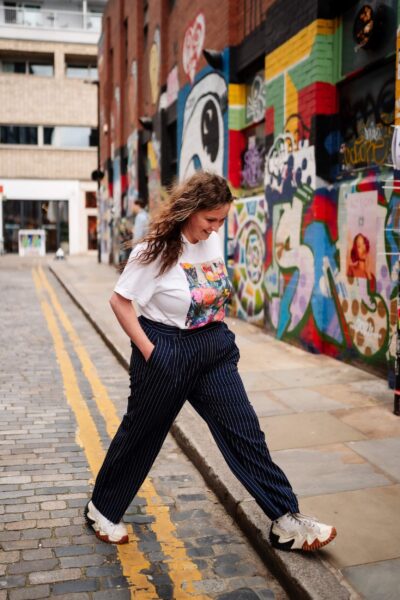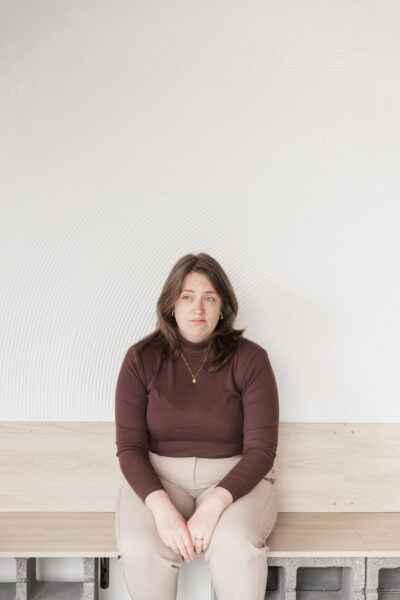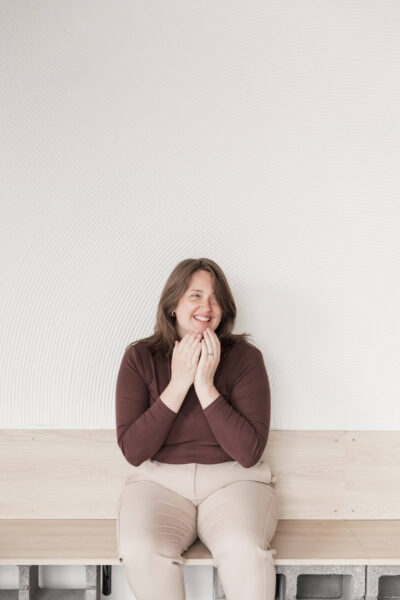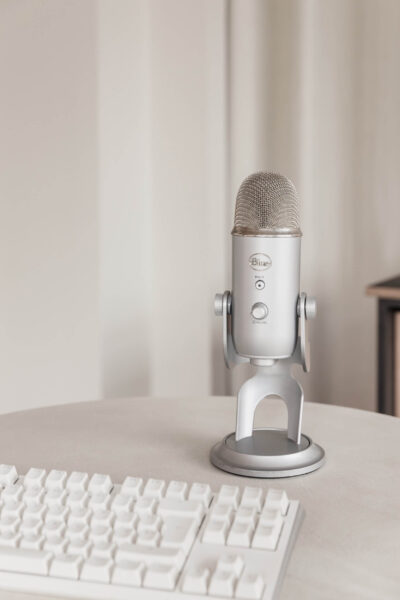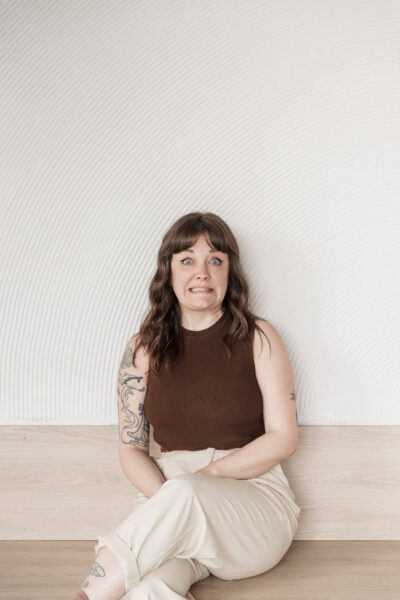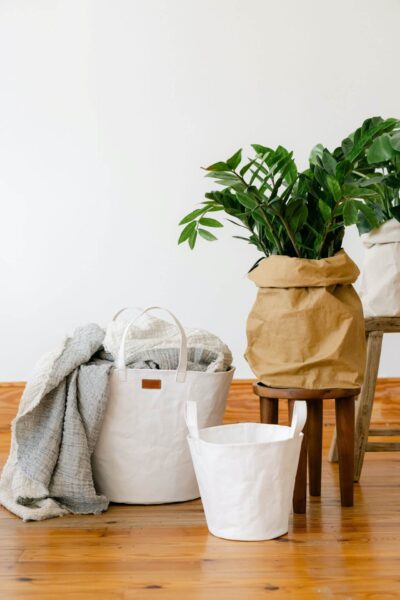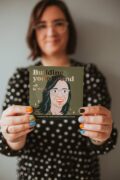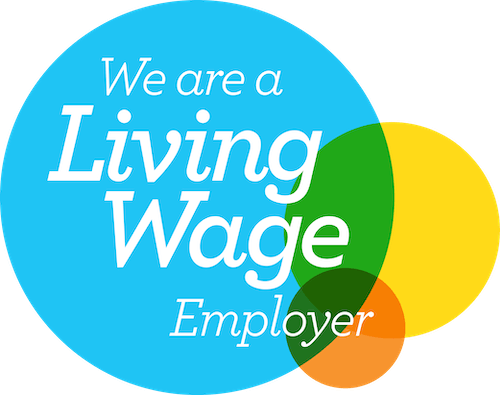Since founding in April 2016, Studio Cotton has worked exclusively with small businesses. From shopkeepers to sash window repairers, we’ve built just a tonne of websites for local and independent brands. And now, we’re making websites for podcasts too.
We’d say that it’s a small wiggle rather than a pivot. Like a lot of small business owners, I have been feeling compelled to over-explain this addition to our web design packages. Partly because I don’t want our current small business clients and audience feel like we’re leaving them behind (as we most certainly are not), and partly because I think it’s a pretty nifty story and I am dead excited.
So if you’re curious about this podcast website wiggle, here’s the 8 reasons why Studio Cotton has launched a podcast web design package.
1. It all started with my own hustlin’
It’s a bit of a dream combo really; PR is good for Studio Cotton. I love talking about small business and website stuff. Guesting on podcasts is good for PR.
Ergo, I wanna be on podcasts about small business life.
Whilst researching podcasts so that I could craft some pitches, I visited a whole heap of podcast websites. And to be a little blunt, they were very, uh, non-optimal.
Now I want to be clear here that none of this isn’t a slight against the podcasters and their podcasts.
It’s the same as how incredible small businesses with *the best* products also sometimes have a bit of a ‘meh’ website. The quality of a website doesn’t always indicate the quality of what it’s selling, or who is selling it.
However. One thing that caught my eye is that most of these websites were shoehorning their episodic content into Squarespace, Shopify or WordPress blogging functionality – almost like there wasn’t an accessible, dedicated website platform for promoting podcast content…
2. Well-known podcasts have ‘meh’ websites too
Here’s where it gets interesting – I thought I’d dig deeper and expand my research/website-stalking to big name podcasts. It turns out that a lot of them were using the same blog-bodge content structure as the small business podcasts too.
I visited podcast websites for different genres, different audience sizes, different platforms’ charts. I couldn’t find a single website that truly made the most of this long form content format.
What blew my gosh darn mind even more was how many podcasts I couldn’t find websites for at all – and it wasn’t because they didn’t have websites; it was because their SEO kinda sucked.
Search engine optimisation (SEO) is the practice of producing and presenting content in a format that helps Google to read and to understand. The ultimate goal is to rank as highly and as often as possible in Google search results, which is why SEO is our most blogged-about topic here at Studio Cotton.
My mind was ka-powing all over the place because:
- It’s really unusual for a brand not to rank top for its own name, and the title of a podcast is most certainly a brand
- Long form content like podcast episodes are SEO gold
If you’re thinking “Yeah, but what about the podcast websites that aren’t using blogs for their episodes?”.
Well, from my research – most of them only had a web page (or handful of web pages) that essentially clicked straight off of the podcasters website and on to various listening platforms.
This lead me to the conclusion that podcast websites are, as a whole, far from optimised tools for promoting their podcast episode content.
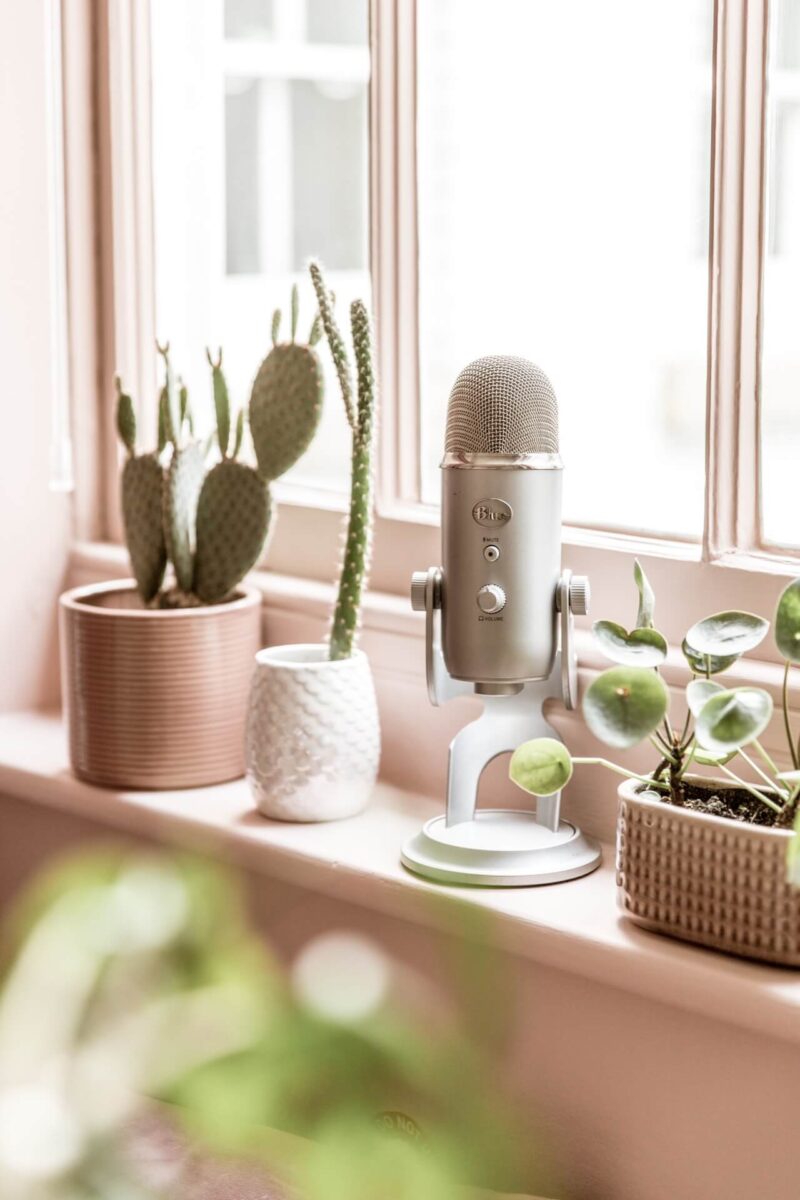
3. Optimised podcast websites just make a tonne of sense for Studio Cotton
We’ve built over 70 websites for online shops, blogs, magazines, communities, and service businesses.
At the end of the day, a website will pretty much always be a tool for achieving a specific goal.
We’ve optimised the bejeebers out of tonnes of types of websites, with a strict focus on “what has the best chance of working for this client, and what they’re selling, and who they are selling to” – goal-optimised websites.
That includes:
- Building a bangin’ SEO foundation
- Adhering to UX best practice
- Crafting ideal user journeys
- Structuring content and providing writing prompts
- Removing accessibility barriers
- Configuring shortcuts and easy wins into the back end
- Designing for the future – doing what we can now to reduce time and costs later
An optimised ecommerce website promotes a database of products. An optimised magazine or blog website promotes a database of articles. An optimised service business website promotes a small database of services.
An optimised podcast website should promote a database of podcast episodes. That’s the goal, and we know how to design a website that gives a really ruddy good chance of achieving it.
4. Commercially designed and monetised is our jam
We couldn’t ask our target audience of podcasters to spend upwards of £6k on a new website if there wasn’t a realistic return on investment; if there wasn’t (more) money to be made.
Throughout the process of developing our podcast website package, I kept thinking “why is nobody else doing this?!”, and I kinda have one main theory: it wasn’t totally obvious how a more optimised website would financially benefit the podcaster.
It wasn’t totally obvious how a podcast website could pay for itself (and then create profit).
Now podcasts can be monetised in a number of ways; sponsorship, advertising, affiliate links, merch, memberships, tipping and more.
However, from my research, there weren’t any obvious solutions or examples of websites that clearly directed its audience towards those commercial opportunities.
So we designed and developed some nicely-subtle-yet-thoughtfully-integrated calls to action for monetisation throughout our package, making it as-easy-as-possible for sponsors, brands, and listeners to support their favourite podcast.
5. Nobody else seems to be selling podcast website design
I know I already said I blew my gosh darn mind, but right here it blew a-gosh-darn-gain.
Despite some hardcore Googling of “Podcast website design” or “Podcast web designer” or even “Podcast website template” – I couldn’t find anything close to the kind of sophisticated and commercially-optimised platform we could build.
Literally the only web pages I found with dedicated podcast web design services were duplicated SEO fodder. This is a practice where a business will publish a tonne of pages with minimal content variations, e.g. pages about “podcast website design”, “restaurant website design”, and “go-karting website design” – to try and exact-match your Google searches.
As a fun tidbit, this is actually a very naughty SEO tactic that, in theory, shouldn’t work.
However, because there are no legit/targeted pages to compete – those naughty pages still rank really well.
Right now I’m hoping that the podcast web design page we’ve just published will knock those competitors out of the water/off the internet.
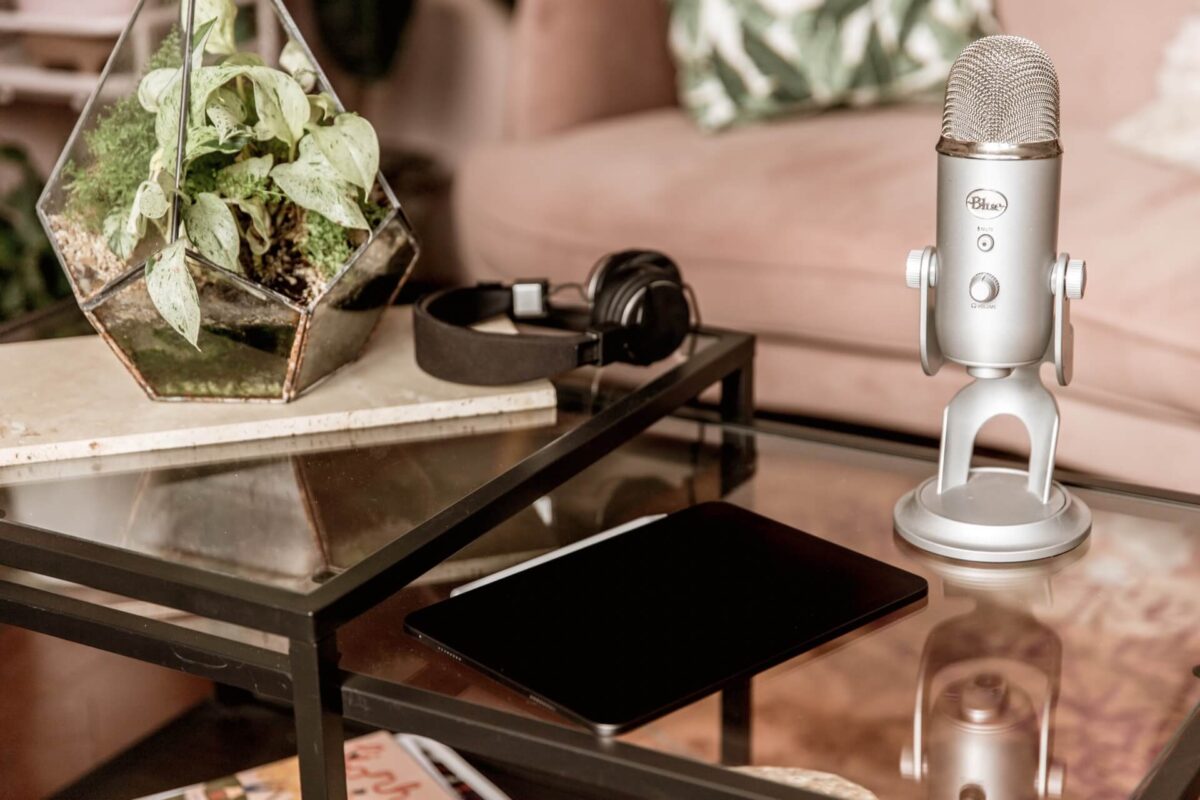
6. We already use the perfect website tech combination
The key to nailing a podcast web design package is creating that optimal architecture for attracting listeners, sending them to a perfect episode, and monetising podcast content.
We would need to create the opposite of a blog-bodge; structured data that included fields every podcaster needs. A custom type of post, and custom fields, and metadata to match.
For example, having different fields for your show notes and transcript, or being able to sort episodes by series, topic or collection.
And then we’d need the front end of the website – the part the visitors interacts with – to seamlessly pull in this data in a format that is beautiful, intuitive, and with a clear hierarchy.
For example, having prominent links to listen to episodes on the visitors’ favourite platforms, or hiding the transcript in a toggle to stop it dominating the page.
WordPress is literally made for this, especially when paired with a visual page builder that allows for quick and reactive content management.
And we’re a bunch of WordPress specialists.
7. We’ve already ruddy built websites for podcasters
What a twist! Yep, we designed a podcast website platform before we even decided to start selling podcast websites.
Over the past couple of years, we’ve built a few websites for small business founders with podcasts, including The Resilient Retail Club and Nikky Lyle.
Now prepare for another twist…
…I rarely actually listen to podcasts.
And I think that because of this, I designed and built the website structure that made the most sense for the podcast content our clients were providing, based on it being a commercial asset of a small business.
I never approached these additions to our projects as casual, just-for-fun features and shoutouts. From day one, we’ve only ever viewed podcasts commercially – which I think popped us in a rather unique position.
This is probably why the meh-ness of the podcast websites I found during my research stood out to me.
I really hope to not come across as a horn-tooter, but it started to seem like we’d built a better solution to the podcast website challenge, without even going whole-hog. So whole-hog we’ve now gone.
8. Creating podcast websites sounded like fun
One of my favourite benefits of running my own small business is autonomy – I get to pick what we do, and I pick the fun stuff.
Creating and selling podcast websites just feels like a jolly good project. It’s totally new, and yet exactly what Studio Cotton has already been doing for 7+ years.
We’ve never been in this spot before – where we’re selling what might just be a totally novel, specialist optimised website package. There must be thousands of web designers selling splendid online shops, but I am mega looking forward selling what might just be the very best podcast websites.
My jimmies are thoroughly rustled.
So that’s 8 reasons why Studio Cotton is launching a podcast web design package. Hopefully I’ve made you even 10% as excited about podcast websites as I am.
What’s even more titillating is how many more clever features we’ve packed into our package that I haven’t even mentioned in this blog, or our service page all about podcast web design. Those I’m keeping away from potential copycats, so you’ll have to book in a project consultation for that scoop 😎
Now, head over to read all about our podcast websites, or get in touch if you’re interested in booking our web design services. I can’t wait to hear from ya.
